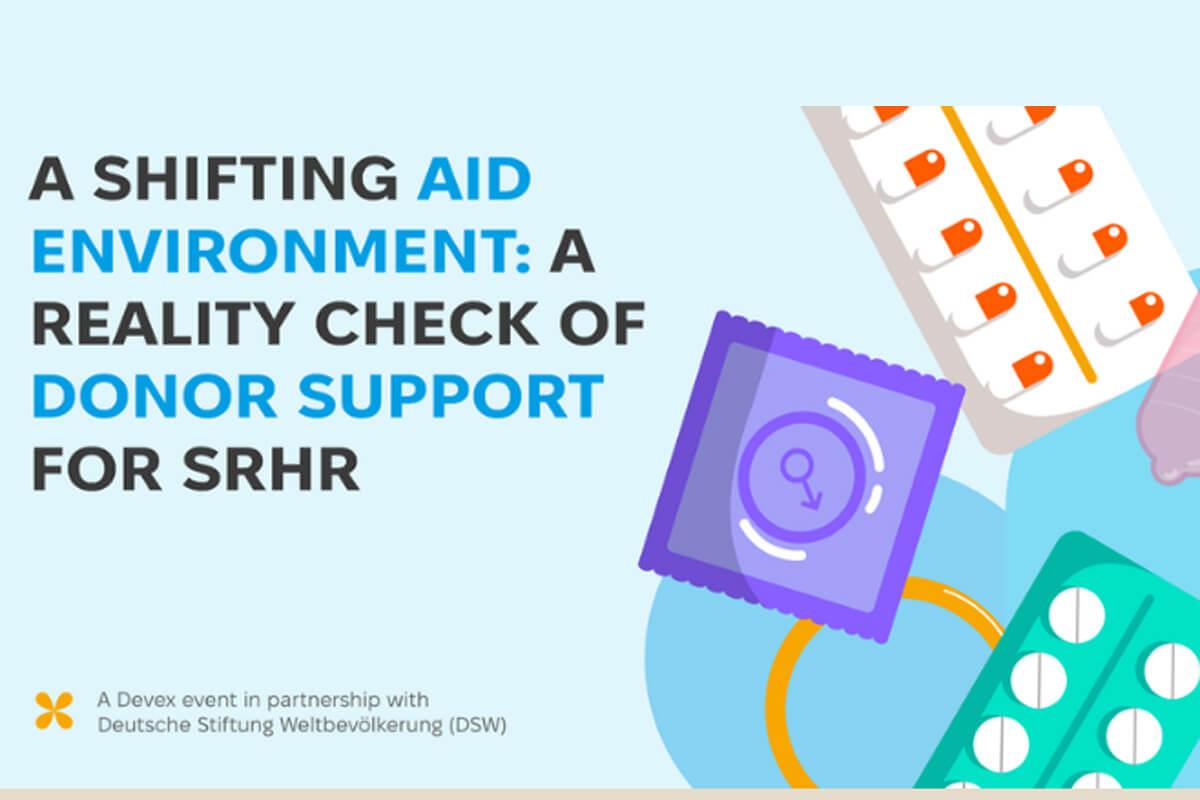
This was a Devex webinar in partnership with Deutsche Stiftung Weltbevolkerung (DSW), that took place on 4 June 2025. You can watch it here, on YouTube. It’s about 70 minutes long.
Following an Introduction by Kate Warren, Executive Director of Devex, and several other speakers, there was a presentation by Dr Natalia Kanem, UNFPA Executive Director. UNFPA has been especially hard hit by Trump the Destroyer, losing US funding for the great majority of their programmes, which may force them to leave New York. Her quiet but strong intention to carry on in any case is very moving. About 30 minutes into the webinar, there is a panel discussion. Speakers were Jonathan Wittenberg from the Guttmacher Institute in New York; Almut Knop from the German Federal Ministry for Economic Cooperation and Development; Dr Carole Sekimpi, Senior Africa Director of MSI Reproductive Choices; and Agnès Soucat, Director of Health and Social Protection, French Development Agency (AFD).
Especially interesting were Dr Carole Sekimpi and Agnès Soucat. Dr Sekimpi describes the effect of the loss of funding as sudden and unprecedented, which has led many small NGOs in Africa to close, caused a loss of leadership and a loss of health workers, especially midwives and nurses, and caused many other missing pieces. She also notes a rise in visibility and action by anti-abortion groups and governments, along with so-called “promotion of ‘family protection’”.
Agnès Soucat says France has decided to work more than ever to maintain the SRHR agenda in response to these events, focusing on three priority issues: the development of equality between men and women, including in Europe, where some countries have abandoned feminist policies, along with focusing on ecology and saving the planet as the second, and promoting democracy as the third. She also points out that the loss of US funding, as big as it is, actually represents only a small amount of the funding that many other countries themselves spend. She points out that funding for sexual and reproductive health is mostly a question of domestic funding, except for the least developed countries, like Ethiopia, who are among the worst affected, along with about 30 other low-income countries. She argues that what has happened calls into question the entire global funding framework, in which funding is currently going more to middle income countries. And she calls for a shift in the way development assistance is located, to really focus on the low income countries, while at the same time working with middle income countries in partnership.
The whole webinar takes a panoramic look at the consequences of Trump’s destructive rampage across the field internationally and the consequences for those of us at the non-governmental end of the line. It also explains why, every five minutes of every day, our friends in the field are sending all of us and each other emails begging for donations. Well worth listening to.



